
The Majestic Limestone Forest of Tsingy de Bemaraha
Tsingy de Bemaraha National Park is a marvel of nature located in western Madagascar. Known for its unique and dramatic limestone formations, the park is a UNESCO World Heritage Site. The word 'Tsingy' means 'where one cannot walk barefoot,' and it aptly describes the jagged, razor-sharp pinnacles that dominate the landscape. These formations have been sculpted by nature over millions of years, creating a labyrinth of stone that is both awe-inspiring and otherworldly. The park is not just about its striking geology. It is also a hotspot for biodiversity. Home to many endemic species of plants and animals, it offers a unique opportunity for wildlife enthusiasts. You can spot lemurs, reptiles, and various bird species that are found nowhere else on Earth. The park's dense forests and mangrove swamps add to its ecological richness, making it a paradise for nature lovers and researchers alike. Exploring Tsingy de Bemaraha is an adventure in itself. The park offers several trails and suspension bridges that allow visitors to navigate its rugged terrain. From hiking and rock climbing to guided tours, there are multiple ways to experience the park's natural beauty. However, due to its remote location and challenging landscape, it's advisable to plan your visit carefully and opt for guided tours to make the most out of your trip.
Local tips in Tsingy de Bemaraha National Park
- Bring sturdy hiking shoes with good grip; the terrain can be very challenging.
- Consider hiring a local guide. They are knowledgeable about the park's trails and wildlife.
- Visit during the dry season (April to November) for more accessible trails and better weather.
- Pack plenty of water and snacks, as there are limited facilities in the park.
- Don't forget your camera. The unique landscapes and wildlife offer fantastic photo opportunities.
The Majestic Limestone Forest of Tsingy de Bemaraha
Tsingy de Bemaraha National Park is a marvel of nature located in western Madagascar. Known for its unique and dramatic limestone formations, the park is a UNESCO World Heritage Site. The word 'Tsingy' means 'where one cannot walk barefoot,' and it aptly describes the jagged, razor-sharp pinnacles that dominate the landscape. These formations have been sculpted by nature over millions of years, creating a labyrinth of stone that is both awe-inspiring and otherworldly. The park is not just about its striking geology. It is also a hotspot for biodiversity. Home to many endemic species of plants and animals, it offers a unique opportunity for wildlife enthusiasts. You can spot lemurs, reptiles, and various bird species that are found nowhere else on Earth. The park's dense forests and mangrove swamps add to its ecological richness, making it a paradise for nature lovers and researchers alike. Exploring Tsingy de Bemaraha is an adventure in itself. The park offers several trails and suspension bridges that allow visitors to navigate its rugged terrain. From hiking and rock climbing to guided tours, there are multiple ways to experience the park's natural beauty. However, due to its remote location and challenging landscape, it's advisable to plan your visit carefully and opt for guided tours to make the most out of your trip.
When is the best time to go to Tsingy de Bemaraha National Park?
Iconic landmarks you can’t miss
Isalo National Park
Explore the breathtaking landscapes and unique biodiversity of Isalo National Park, Madagascar's natural wonder for adventurers and nature enthusiasts.
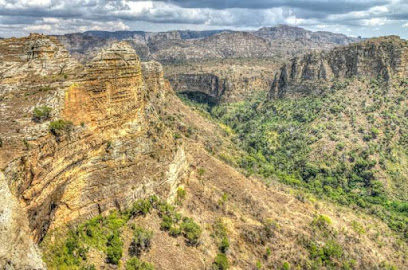
Réserve spéciale d'Analamazoatra
Discover the unique biodiversity of Réserve spéciale d'Analamazoatra, a haven for wildlife enthusiasts and eco-tourists in Madagascar.
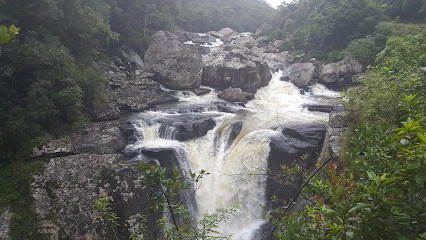
Ranomafana National Park
Experience the lush landscapes and rich biodiversity of Ranomafana National Park, Madagascar's premier destination for nature lovers and adventure seekers.
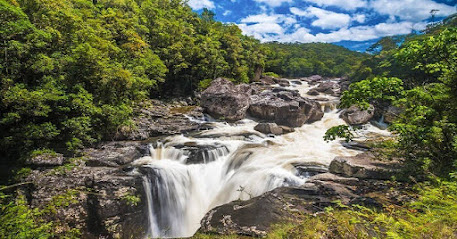
Anja Community Reserve
Explore Madagascar's Anja Community Reserve, a natural sanctuary teeming with wildlife, especially the iconic ring-tailed lemurs, and breathtaking landscapes.
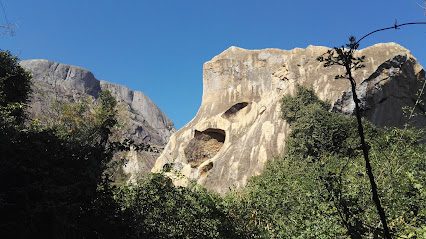
Andasibe-Mantadia National Park
Explore the enchanting biodiversity and breathtaking landscapes of Andasibe-Mantadia National Park in Madagascar, a true gem for nature lovers and adventurers.
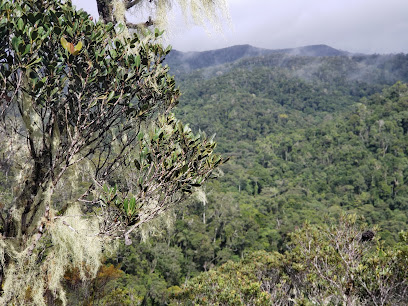
Tsingy De Bemaraha National Park
Discover the breathtaking limestone formations and unique wildlife of Tsingy De Bemaraha National Park, a UNESCO World Heritage treasure in Madagascar.
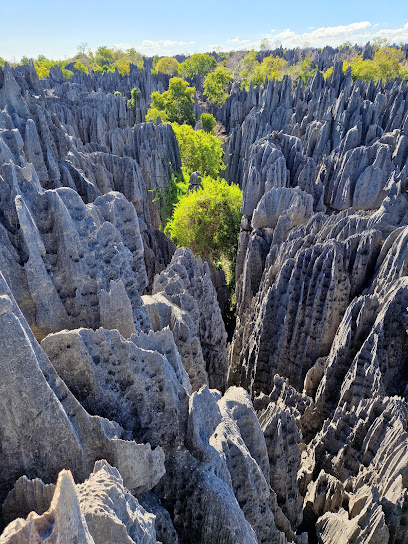
Avenue of the Baobabs
Explore the Avenue of the Baobabs, a stunning national forest in Madagascar showcasing iconic baobab trees, perfect for photography and nature appreciation.
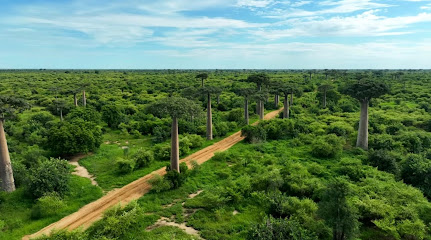
Tsingy Rouge
Explore Tsingy Rouge, Madagascar’s stunning red rock formations and a unique geological wonder, perfect for nature lovers and adventure seekers.
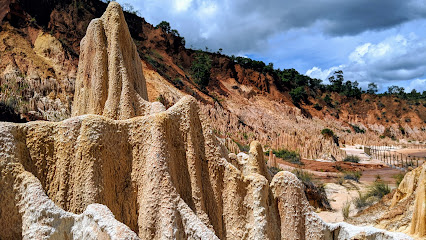
Montagne D'Ambre nationalpark
Discover the vibrant ecosystems and breathtaking landscapes of Montagne D'Ambre National Park, a must-visit national reserve in Madagascar.
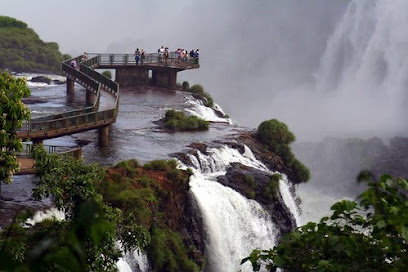
Réserve spéciale d’Ankarana
Experience the stunning geological formations and unique wildlife of Ankarana Special Reserve, Madagascar's breathtaking national park.
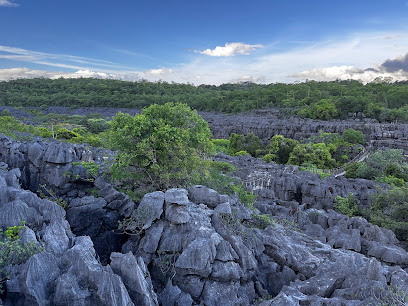
Orchidée du Bemaraha
Discover the tranquility of Orchidée du Bemaraha, your gateway to Madagascar's Tsingy de Bemaraha National Park, where adventure meets comfort in stunning surroundings.

Reserve Reniala
Discover the enchanting Reserve Reniala in Ifaty, Madagascar, a biodiversity hotspot showcasing unique flora and fauna in a serene natural setting.
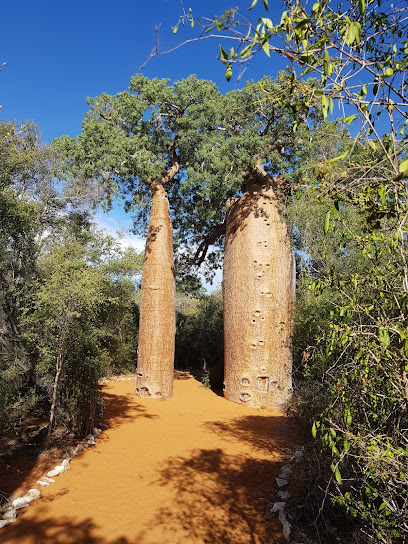
Relais Du Kirindy
Discover the beauty of Madagascar at Relais Du Kirindy, your gateway to wildlife adventures and serene accommodations.

Parc Ivoloina
Explore Parc Ivoloina, a stunning zoo and tourist attraction in Madagascar, home to diverse wildlife and beautiful natural landscapes.
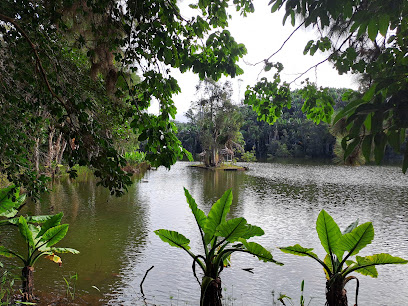
Ankarafantsika National Park
Explore Ankarafantsika National Park, a breathtaking natural wonder in Madagascar with diverse wildlife, stunning landscapes, and rich cultural heritage.
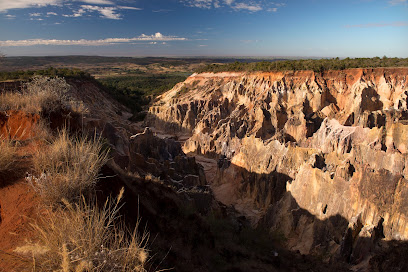
Unmissable attractions to see
Avenue of the Baobabs
Explore the Avenue of the Baobabs in Madagascar, where towering trees meet breathtaking landscapes for an unforgettable travel experience.
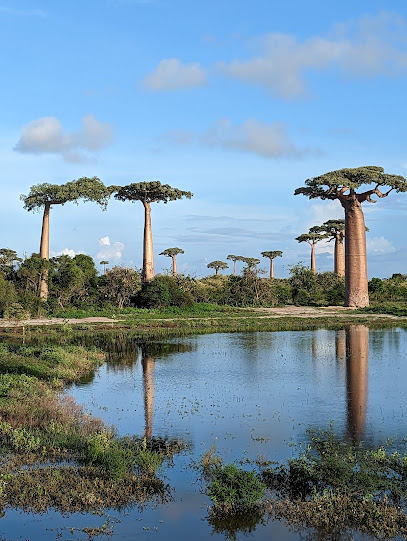
Plage de Maintirano
Experience the breathtaking beauty and tranquility of Plage de Maintirano, a hidden coastal paradise in Madagascar.
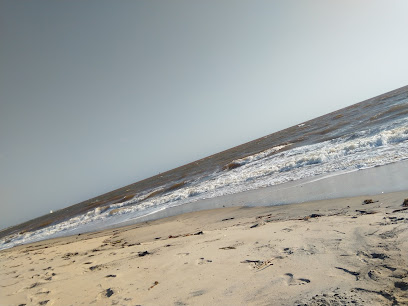
Heiliger Baobab
Explore the Heiliger Baobab, Madagascar's majestic natural wonder, and immerse yourself in its enchanting beauty and rich cultural significance.
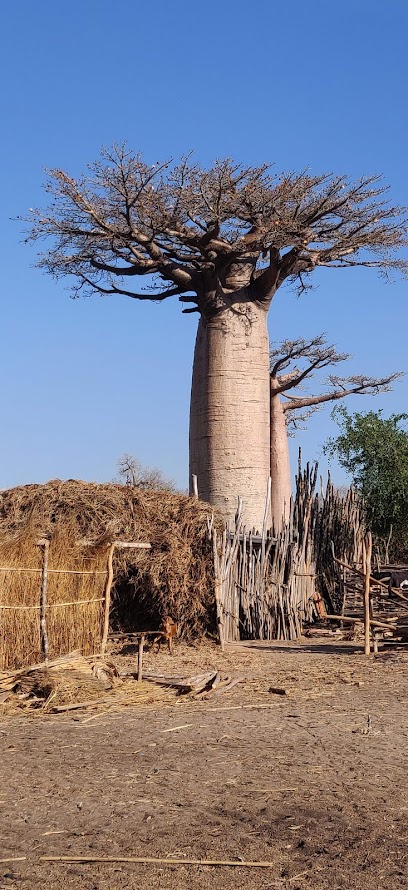
Andranofoty
Discover the breathtaking trails and rich biodiversity of Andranofoty, a must-visit hiking area in Madagascar's beautiful Belo Tsiribihina region.

Beanka Forest
Explore Beanka Forest, an ecological paradise in Madagascar, where biodiversity thrives and nature's beauty captivates every visitor.

Guide Touristique de Bemaraha
Discover the breathtaking landscapes and rich biodiversity of Madagascar at the Guide Touristique de Bemaraha, a UNESCO World Heritage Site.

Tsimandrafoza
Explore the stunning natural landscapes of Tsimandrafoza, a premier hiking area in Andopitaly, Madagascar, perfect for adventurers and nature lovers.

Tsingy de Bemaraha Strict Nature Reserve
Experience the captivating natural wonders of Tsingy de Bemaraha, Madagascar's UNESCO World Heritage site, renowned for its unique limestone formations and rich biodiversity.

Reserve Naturelle Integrale de l' Atsingy
Discover the breathtaking landscapes and unique wildlife of Madagascar at Reserve Naturelle Integrale de l' Atsingy, a true nature lover's paradise.

Tsy mabefehy
Experience the enchanting beauty and rich culture of Tsy Mabefehy, a must-visit tourist attraction in Ankisatra, Madagascar.

Markets, malls and hidden boutiques
Tsingy De Bemaraha National Park
Explore the stunning landscapes and unique biodiversity of Tsingy De Bemaraha National Park in Madagascar, a UNESCO World Heritage Site.
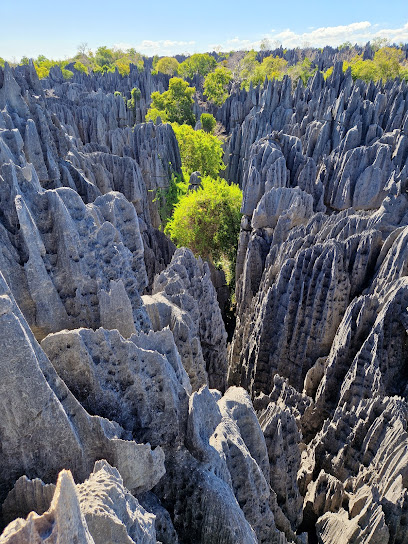
Lisy Art Gallery
Explore the Lisy Art Gallery: A Cultural Haven Showcasing Madagascar's Artistic Treasures in Antananarivo.
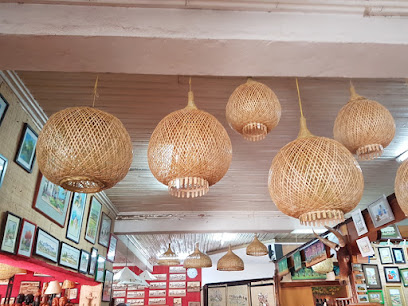
Akoor Digue
Discover the vibrant shopping experience at Akoor Digue in Antananarivo, where local culture meets modern retail in a lively atmosphere.
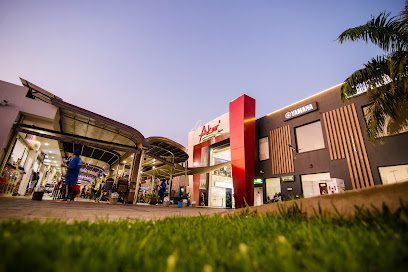
Reserva natural de Tsingy de Bemaraha
Explore the breathtaking Tsingy de Bemaraha, Madagascar's UNESCO World Heritage Site known for its stunning limestone formations and rich biodiversity.
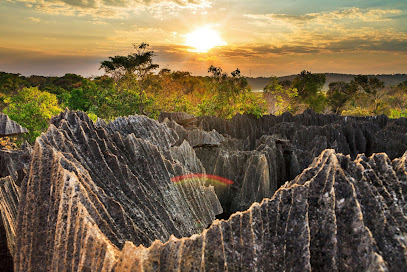
Digue Market
Visit Digue Market in Antananarivo for an authentic shopping experience filled with local crafts, fresh produce, and vibrant cultural exchanges.
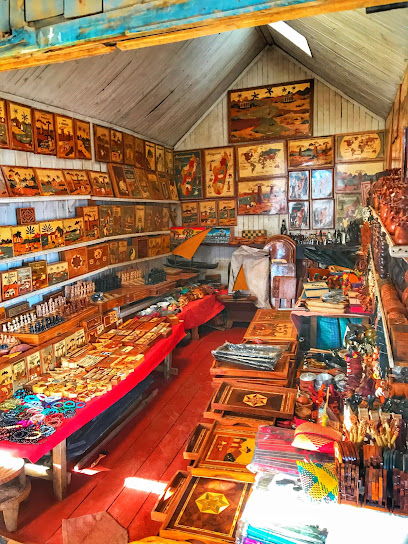
Akany Concept Store
Discover the essence of Madagascar at Akany Concept Store, where local craftsmanship meets unique shopping experiences in Antananarivo.
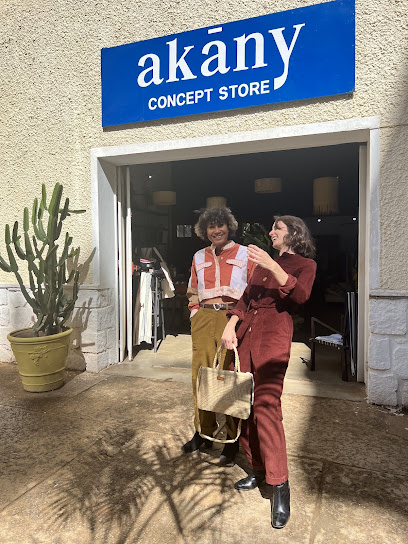
Telma Shop Maintirano
Explore the vibrant Telma Shop in Maintirano for essential telecommunications and local shopping experiences in Madagascar's picturesque coastal city.
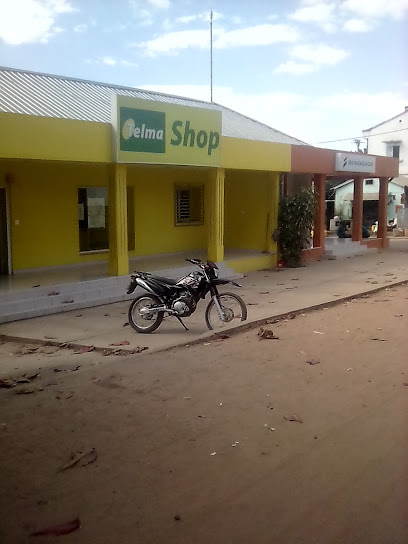
Pharmacie
Explore Pharmacie in Maintirano: Your trusted partner for health, wellness, and local remedies during your travels in Madagascar.

Tsingy Lodge de Bemaraha
Discover the natural beauty and unique charm of Madagascar at Tsingy Lodge de Bemaraha, your perfect retreat near stunning landscapes.
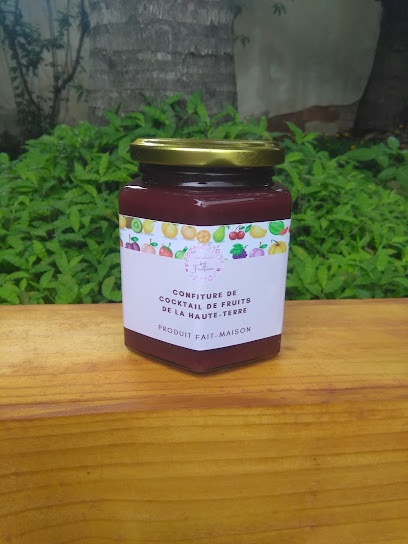
Maman i Vanya
Discover the rich flavors of Madagascar's coffee culture at Maman i Vanya in Bemonto – a cozy retreat for coffee enthusiasts.

Bazar de Soatanana
Explore Bazar de Soatanana in Bejea, Madagascar - a vibrant shopping mall filled with local crafts, delicious food, and cultural experiences.

Marché communal
Explore the vibrant colors and flavors of Madagascar at Marché Communal, a must-visit produce market in Belo Tsiribihina.

Fanantenana
Discover essential healthcare at Fanantenana Pharmacy in Belo Tsiribihina, your reliable partner for health needs while exploring Madagascar.
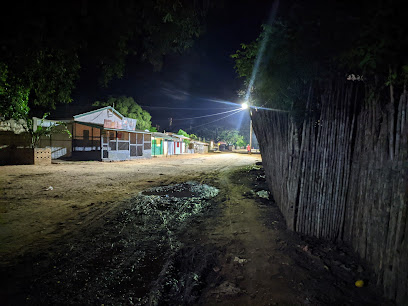
Coopfiame
Explore the charm of Belo Tsiribihina at Coopfiame, where unique consignment treasures await every visitor.
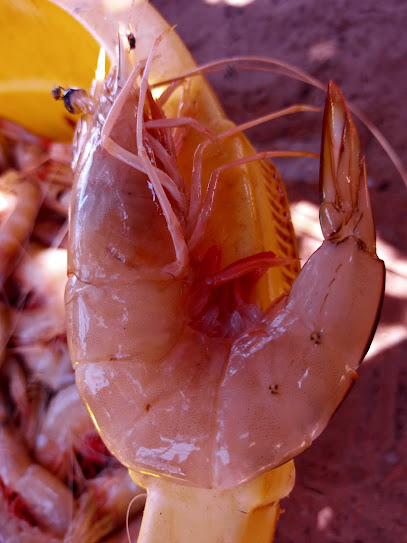
BIKWASI TOURS AND TRAVEL
Discover Antananarivo's Bikwasi Tours and Travel Shopping Mall, where local culture meets vibrant shopping and exquisite Malagasy cuisine.

Essential bars & hidden hideouts
MAD ZEBU RESTAURANT
Experience authentic Malagasy cuisine at Mad Zebu Restaurant in Belo-sur-Tsiribihina, where local flavors meet warm hospitality.
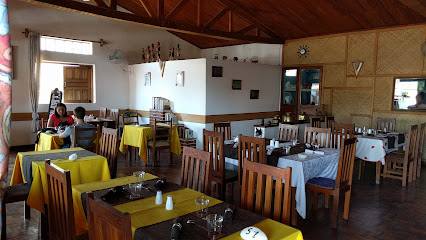
L'Olympe du Bemaraha
Discover the breathtaking landscapes and unique wildlife of Madagascar at L'Olympe du Bemaraha, the gateway to Tsingy de Bemaraha.

Karibo Hotel
Discover the taste of Madagascar at Karibo Hotel, a culinary haven in Belo Tsiribihina, blending local flavors with a welcoming atmosphere.
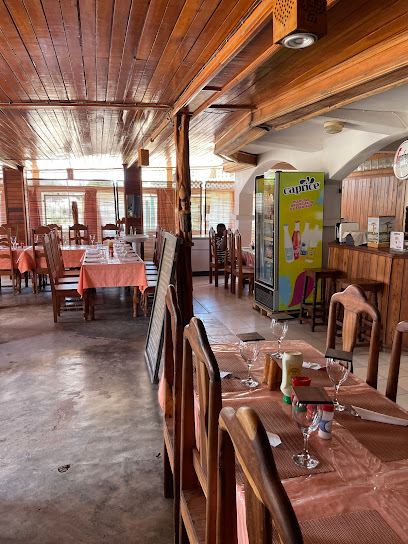
Le Point d'Exclamation Lounge Bar
Discover the lively ambiance of Le Point d'Exclamation Lounge Bar in Antananarivo, where cocktails, music, and fun come together in an unforgettable experience.
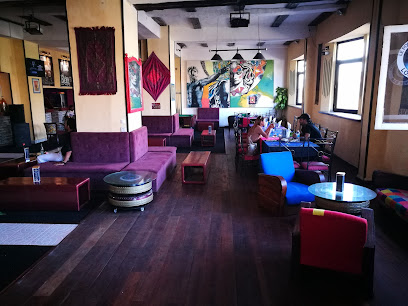
Le Grand Hotel du Tsingy de Bemaraha
Discover the comfort and adventure at Le Grand Hotel du Tsingy, your gateway to Madagascar's breathtaking Tsingy de Bemaraha National Park.

Old 7 bar
Experience the nightlife of Antananarivo at Old 7 Bar, with a lively atmosphere, local drinks, and a welcoming vibe.
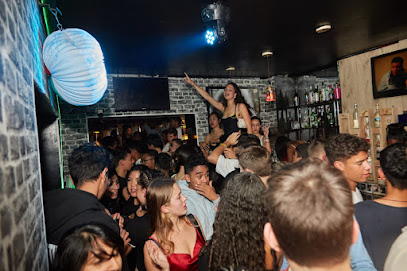
Manson by Marco
Discover the vibrant atmosphere of Manson by Marco, a must-visit pub in Antananarivo offering local drinks, delicious snacks, and lively entertainment.
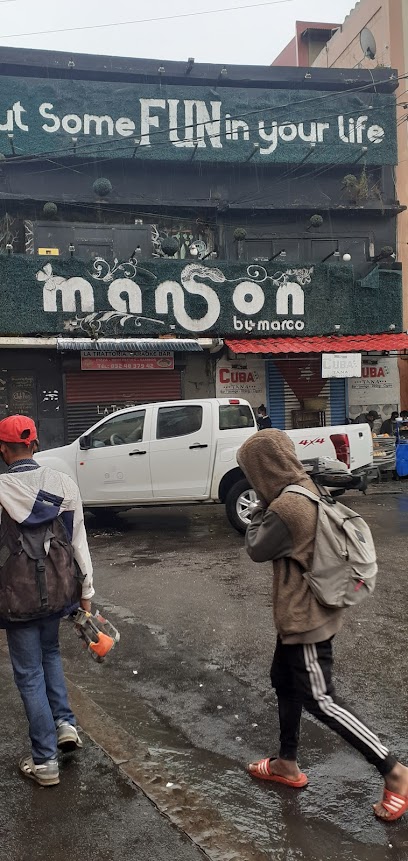
Mini Resto Sifaka
Experience the authentic flavors of Madagascar at Mini Resto Sifaka in Bekopaka, where every dish tells a story of local culture.
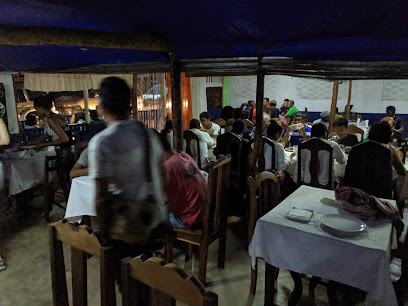
Restaurant Generation
Experience authentic Malagasy cuisine at Restaurant Generation in Bekopaka, where local flavors and hospitality meet in a cozy atmosphere.
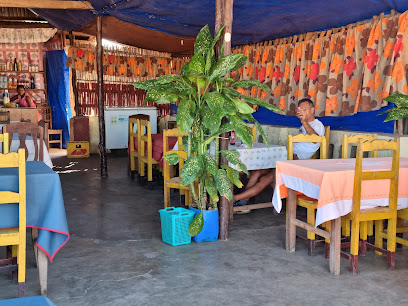
Tsingy Lodge de Bemaraha
Discover the serene beauty of Tsingy Lodge de Bemaraha, your gateway to Madagascar's stunning limestone landscapes and vibrant wildlife.
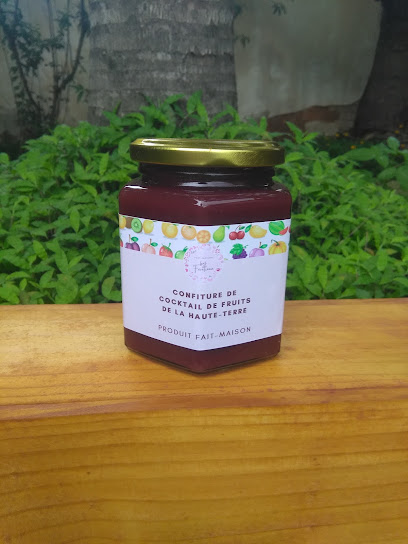
Tanambao Nord
Experience the authentic flavors of Madagascar at Tanambao Nord, a delightful restaurant in Maintirano that offers a taste of local cuisine.

Espoir
Experience the rich flavors of Malagasy cuisine at Espoir in Maintirano, a must-visit restaurant for food lovers.

Nosy maitso
Experience the vibrant atmosphere and local flavors at Nosy Maitso, the must-visit bar in Kirindy Village, Madagascar.

George's Barbeque
Experience the authentic taste of Madagascar with mouthwatering barbeque at George's Barbeque, a culinary treasure for every traveler.

Local Phrases about Tsingy de Bemaraha National Park
-
- HelloSalama
[sa-la-ma] - GoodbyeVeloma
[ve-lo-ma] - YesEny
[e-ny] - NoTsia
[tsi-a] - Please/You're welcomeAzafady
[a-za-fa-dy] - Thank youMisaotra
[mi-sa-oo-tra] - Excuse me/SorryMiala tsiny
[mya-la tsi-ny] - How are you?Manao ahoana ianao?
[ma-nao a-wan i-a-nao] - Fine. And you?Tsara. Ianao?
[tsa-ra. i-a-nao] - Do you speak English?Miteny anglisy ve ianao?
[mi-te-ny ang-li-sy ve i-a-nao] - I don't understandTsy mahay
[tsi ma-hai]
- HelloSalama
-
- I'd like to see the menu, pleaseTianao hijery ny ranomaso, azafady
[tya-nao hi-je-ry ny ra-no-ma-so a-za-fa-dy] - I don't eat meatTsy mihinam-pana
[tsi mi-hi-na-pa-na] - Cheers!Saihy
[sai-hy] - I would like to pay, pleaseTianao hametraka vola, azafady
[tya-nao ha-me-tra-ka vo-la a-za-fa-dy]
- I'd like to see the menu, pleaseTianao hijery ny ranomaso, azafady
-
- Help!Fanampiana!
[fa-nam-pya-na] - Go away!Mihinana!
[mi-hi-na-na] - Call the Police!Mangina ny polisy!
[man-gi-na ny po-li-sy] - Call a doctor!Mangina dokotera!
[man-gi-na do-ko-te-ra] - I'm lostDiloako
[di-loa-ko] - I'm illMafy aho
[ma-fy a-ho]
- Help!Fanampiana!
-
- I'd like to buy...Tianao hanoka...
[tya-nao ha-no-ka...] - I'm just lookingMihaino ihany
[mi-hai-no i-ha-ny] - How much is it?Fa hoatran'ny inona no vidiny?
[fa ho-a-tra-ni-ny ino-na no vi-di-ny] - That's too expensiveMahafinaritra lavitra
[ma-ha-fi-na-ri-tra la-vi-tra] - Can you lower the price?Afaka mihena ny vidiny ve ianao?
[a-fa-ka mi-he-na ny vi-di-ny ve i-a-nao]
- I'd like to buy...Tianao hanoka...
-
- What time is it?Inona no andro?
[i-no-na no an-dro] - It's one o'clockEnina alina
[e-ni-na a-li-na] - Half past (10)Efapolo sy folo
[e-fa-po-lo si fo-lo] - MorningMaraina
[ma-rai-na] - AfternoonAloha
[a-lo-ha] - EveningHariva
[ha-ri-va] - YesterdayOmaly
[o-ma-ly] - TodayAnio
[a-ni-o] - TomorrowRahampitso
[ra-ham-pit-so] - 1Iray
[i-ray] - 2Roa
[ro-a] - 3Telo
[te-lo] - 4Efatra
[e-fa-tra] - 5Dimy
[di-my] - 6Enina
[e-ni-na] - 7Fito
[fi-to] - 8Valo
[va-lo] - 9Sivy
[si-vy] - 10Folo
[fo-lo]
- What time is it?Inona no andro?
-
- Where's a/the...?Aiza ny...
[ai-za ny...] - What's the address?Inona ny adiresy?
[i-no-na ny a-di-re-sy] - Can you show me (on the map)?Afaka averina anao ve (amin'ny saritany)?
[a-fa-ka a-ve-ri-na a-nao ve (a-min-ny sa-ri-ta-ny)] - When's the next (bus)?Aiza ny farany (bus)?
[ai-za ny fa-ra-ni (bus)] - A ticket (to ....)Fandaniana (ho...)
[fan-da-ni-a-na (ho)]
- Where's a/the...?Aiza ny...
History of Tsingy de Bemaraha National Park
-
Tsingy de Bemaraha National Park, a UNESCO World Heritage Site, is renowned for its unique limestone formations. Over millions of years, rainwater eroded the soluble limestone, creating the dramatic razor-sharp pinnacles known as 'tsingy.' These formations are not only visually striking but also significant for the study of karst topography.
-
The Tsingy de Bemaraha region was relatively unknown to the outside world until the late 19th and early 20th centuries. Early explorers and scientists, including French geographer Jean-Aubert Grelier, documented the region's unique landscape and biodiversity, paving the way for further scientific inquiry and conservation efforts.
-
The park is a biodiversity hotspot, home to numerous endemic species of plants and animals. Efforts to conserve this unique ecosystem began in earnest in the mid-20th century. In 1990, Tsingy de Bemaraha was designated a UNESCO World Heritage Site, recognizing its ecological significance and the need for ongoing conservation.
-
The region holds great cultural importance for the local Malagasy people. The Tsingy formations and surrounding forests are considered sacred, with various traditional rituals and taboos associated with them. Local communities have coexisted with and adapted to the challenging landscape for centuries, maintaining a symbiotic relationship with their environment.
-
In recent decades, Tsingy de Bemaraha has become a popular destination for eco-tourists and adventure seekers. The Malagasy government and various NGOs have worked together to promote sustainable tourism practices, ensuring that the natural and cultural heritage of the park is preserved for future generations while providing economic benefits to local communities.
Tsingy de Bemaraha National Park Essentials
-
Tsingy de Bemaraha National Park is located in the Melaky region of western Madagascar. The nearest major city is Morondava, which has an airport with flights from Antananarivo, the capital of Madagascar. From Morondava, you can take a 4x4 vehicle to Bekopaka, the gateway to the park, which is about a 7-10 hour drive depending on road conditions. It is advisable to hire a local guide or join a tour for this journey due to the challenging road conditions.
-
Once in Bekopaka, you will primarily rely on 4x4 vehicles for transportation within the park area. Local guides are essential for navigating the rugged terrain. For exploring the park itself, be prepared for a lot of walking and climbing. The park features a series of suspension bridges and narrow pathways that require good physical condition.
-
The official currency is the Malagasy Ariary (MGA). Credit cards are not widely accepted, so it is crucial to carry enough cash for your trip. There are no ATMs in Bekopaka, so it is advisable to withdraw sufficient funds in Morondava or Antananarivo. Some accommodations and tour operators may accept Euros or US Dollars, but this is not guaranteed.
-
Tsingy de Bemaraha National Park is generally safe for tourists, but standard precautions should be taken. Avoid displaying valuables and always stay with your group, especially during hikes. It is advisable to hire local guides who are familiar with the terrain and the safest routes. Crime rates targeting tourists are low, but it's best to stay vigilant, especially in crowded areas like markets.
-
In case of emergency, the closest medical facilities are in Morondava, which is several hours away by road. It is crucial to have travel insurance that covers medical emergencies and evacuation. Local guides can assist in contacting emergency services. There is no reliable mobile network coverage within the park, so arrange for emergency communication with your tour operator beforehand.
-
Fashion: Do wear lightweight, breathable clothing and sturdy hiking shoes. Avoid wearing flashy jewelry. Religion: Do respect local customs and traditions, though the area is not particularly religious. Public Transport: Do use 4x4 vehicles and local guides for transportation. Public transport is virtually non-existent. Greetings: Do greet locals with a smile and a handshake. Learning a few phrases in Malagasy can go a long way. Eating & Drinking: Do try local dishes and drink bottled water. Avoid tap water and unwashed fruits.
-
To experience Tsingy de Bemaraha like a local, spend time with the local guides who can share stories about the area's unique geography and wildlife. Visit the small local villages around Bekopaka to understand the lifestyle and culture of the people. Participate in a traditional meal if invited, and always show respect for the local customs and ways of life. Don't miss the chance to explore both the Petit Tsingy and Grand Tsingy formations for a comprehensive experience of the park.
Trending Landmarks in Tsingy de Bemaraha National Park
-
Isalo National Park
-
Réserve spéciale d'Analamazoatra
-
Ranomafana National Park
-
Anja Community Reserve
-
Andasibe-Mantadia National Park
-
Tsingy De Bemaraha National Park
-
Avenue of the Baobabs
-
Tsingy Rouge
-
Montagne D'Ambre nationalpark
-
Réserve spéciale d’Ankarana
-
Orchidée du Bemaraha
-
Reserve Reniala
-
Relais Du Kirindy
-
Parc Ivoloina
-
Ankarafantsika National Park
Nearby Cities to Tsingy de Bemaraha National Park
-
Things To Do in Antananarivo
-
Things To Do in Fianarantsoa
-
Things To Do in Andasibe
-
Things To Do in Mahajanga
-
Things To Do in Majunga
-
Things To Do in Ifaty
-
Things To Do in Manakara
-
Things To Do in Toamasina
-
Things To Do in Toliara
-
Things To Do in Mandrare River
-
Things To Do in Chirongui
-
Things To Do in Bandrele
-
Things To Do in Sada
-
Things To Do in Dembeni
-
Things To Do in Chiconi









